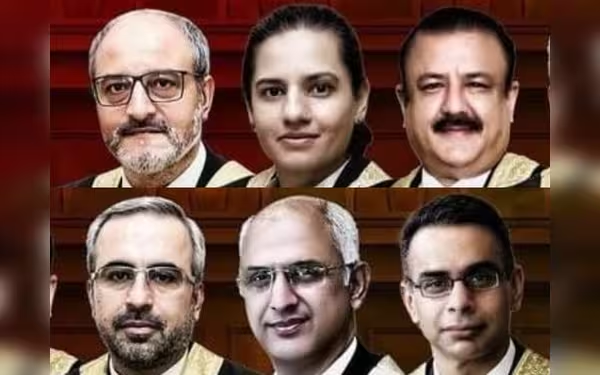Tuesday, July 2, 2024 03:02 PM
Supreme Court of Pakistan Assigns Benches for Crucial Cases
- Larger bench appointed for Justice Kayani's case signifies its complexity.
- Specific benches assigned to ensure justice and fairness in legal system.
- Court's commitment to upholding integrity and addressing challenges to authority.
 Image Credits: tribune.com.pk
Image Credits: tribune.com.pkThe Supreme Court of Pakistan has appointed specific benches for crucial cases involving Justice Kayani and contempt proceedings related to Justice Sattar's letter. This move underscores the court's commitment to upholding the rule of law, ensuring justice, and maintaining transparency within the judicial process.
The Supreme Court of Pakistan has made significant decisions regarding the assignment of benches for two crucial cases. A larger bench, comprising Chief Justice Aamer Farooq, Justice Miangul Hassan Aurangzeb, and Justice Arbab Muhammad Tahir, has been appointed to preside over the case involving Justice Kayani. This move indicates the importance and complexity of the matter at hand. Simultaneously, Justices Kayani, Tariq Mehmood Jahangiri, and Sardar Ejaz Ishaq Khan will be part of the bench responsible for addressing the contempt proceedings stemming from Justice Sattar's letter.
Justice Kayani's case has garnered attention due to its legal intricacies and potential implications. The appointment of a larger bench underscores the need for a thorough examination of the facts and legal arguments involved. On the other hand, the contempt proceedings related to Justice Sattar's letter highlight the court's commitment to upholding its integrity and addressing any challenges to its authority.
The Supreme Court's decision to appoint specific benches for these cases demonstrates a focused approach to ensuring justice and fairness in the legal system. By assigning judges with relevant expertise and experience, the court aims to facilitate a comprehensive review of the issues at hand. This development underscores the significance of upholding the rule of law and maintaining transparency within the judicial process.













